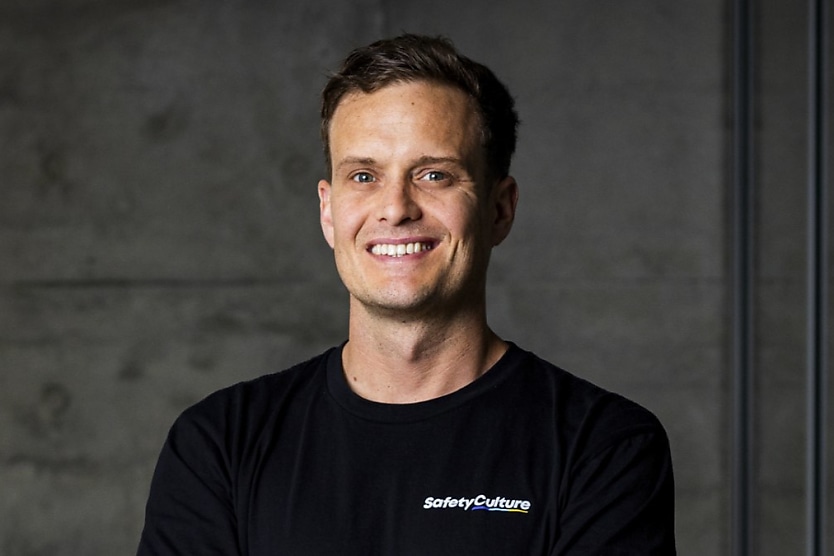Strategies to inspire frontline workers to speak up and take action
SHARE THIS ARTICLE

In the dynamic landscape of business, constant improvement is a key foundation for success. The race for innovation isn’t won by staying in the same place but is instead fuelled by a commitment to evolve and adapt. But where do the most transformative ideas emerge? The answer lies not only in our boardrooms but in the frontlines of our workforce.
In our recent report, Feedback from the Field: Room for Improvement, a staggering 49 per cent of frontline workers surveyed across Australia, the US, and the UK asserted that the most valuable ideas for workplace improvement stem from among their ranks. Our survey, which was conducted in partnership with YouGov, also found that only 23 per cent of these workers attributed innovative ideas to management.
Encouragingly, frontline workers are not silent observers, with 83 per cent confirming they have reported operational issues annually and an impressive 65 per cent doing so monthly. However, the real challenge lies in translating these voices into tangible actions. A concerning 16 per cent claim to have never witnessed any remedial actions taken – either by themselves or their leaders.
As team and business leaders, we have a responsibility to create an environment where our frontline staff are empowered to speak up and take action when it comes to building a better workplace.
Over nearly two decades of managing and empowering frontline teams in manufacturing and now developing technology to make frontline work easier, I’ve learnt a number of strategies to inspire and encourage active participation from frontline workers. These strategies centre around culture, psychological safety, adequate training and technology.
1. Build a culture of innovation
While workers may feel empowered to vocalise their ideas, permission to act on them is a different challenge. Frontline environments often operate within rigid processes, fostering a “we’ve always done it this way” mindset. To counter this, building a culture of innovation is key. Clear communication about regulations, granting autonomy to workers to spearhead initiatives, and involving them in decision-making processes are crucial steps.
2. Foster psychological safety
Innovation flourishes in an environment of psychological safety, where individuals feel encouraged to share ideas without fear of judgement. Unfortunately, frontline workers, comprising 25 per cent of those who feel their mistakes are held against them, struggle in this regard. To foster psychological safety, leaders must model humility and vulnerability, treat mistakes as learning opportunities, and respond positively to suggestions and concerns.
This can definitely be difficult, but it is arguably one of the most important steps when it comes to encouraging frontline workers to speak up.
3. Provide adequate leadership training
Strong leadership plays a pivotal role in empowering frontline workers. However, 30 per cent of workers report that their leaders do not encourage operational improvements. Leadership training – for ourselves and other team leaders who we may be managing – should go beyond process-focused education, encompassing effective response to feedback, modelling humility and vulnerability, involving workers in decision making, and providing guidance without micromanaging.
We need to ensure we can demonstrate these leadership skills and ensure that other leaders within the business are skilled appropriately, too.
4. Implement the right technology
Logistics can impede action. Do frontline workers know where to go with their ideas? Technology offers the answer and can offer intuitive platforms for feedback and issue reporting. Unfortunately, 60 per cent of frontline workers express dissatisfaction with the technology provided by their employers.
Empowering frontline workers isn’t just a theoretical necessity; it’s a practical imperative. Our frontline employees, immersed in the daily operations, possess unparalleled insights into organisational improvements. However, this potential can only be harnessed through cultural shifts, effective leadership, and the right technology.
We can’t expect change without first initiating it ourselves. As leaders, it’s our responsibility to encourage our frontline workforce to speak up and to provide them with the tools and support to turn their insights into action.
Sam Byrnes is the chief product officer at SafetyCulture.
RELATED TERMS
Your organization's culture determines its personality and character. The combination of your formal and informal procedures, attitudes, and beliefs results in the experience that both your workers and consumers have. Company culture is fundamentally the way things are done at work.
